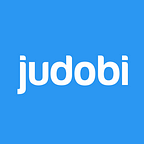Interviewing for jobs can be a scary and stressful experience, but now that you’ve gotten that out of the way, what are your next steps to ensure you remain front of mind as a candidate?
It’s important to remember that hiring managers are potentially speaking to several candidates for a role, and may even be doing so over a very short period. Therefore, post-interview etiquette can help you stand out and remain memorable long after your conversation with them.
Here I share six things you can do after your next job interview.
1. Write a thank you email to the interviewer in the next 24 hours.
This is a great opportunity to leave a positive impression on the interviewer. Even if you didn’t feel the interview went as great as you’d expected, staying in a company’s good books never hurts as you may come up for consideration for other future roles. We often also know of hiring managers who have moved companies and reaching back out to a candidate they interviewed in the past!
The point is good impressions last.
2. Give some insights into what you learned during the interview, liked about the company or areas you need to research further.
In this thank you email, include some takeaways or final thoughts about how you can add value, now that you have more information and context about the role. It shouldn’t be an essay, but write something concise and specific.
You can use this example:
Hi <XXXX>,
I wanted to say thank you for your time today. It was great meeting you and understanding more about the role, your team, and your expectations for the new hire.
It sounds like my experiences match a significant portion of the role, but also leaves some areas for upskilling and development, including <XXXX> and <XXXX>. However, I am confident I can pick these up quickly, and I’m looking forward to the opportunity to learn from the current team.
Looking forward to hearing about the outcome.
Regards,
<XXXX>
3. Follow up with your feedback to the HR or recruiter who organized the meeting.
If you are interviewing through an agency recruiter, this is a great opportunity to be super transparent about how it went. The recruiter will be reaching out to the hiring manager for feedback, and it can be very helpful to be ahead of potential concerns. For example, if you feel like you didn’t answer a question well, you can highlight it to the recruiter.
Remember, your recruiter is on your side and will want you to do well.
With HR, there is also no harm in sending them a thank you email. For example:
Hi <XXXX>,
Thank you very much for helping organize the interview today. It was great meeting <XXXX> and the role sounds very exciting and aligned with what I’m looking for in my next opportunity. Please let me know if there are any follow up questions from the interviewer, or if there’s anything else I can help provide to move the conversation along.
Looking forward to hearing about next steps.
Regards,
<XXXX>
4. Connect with the interviewer on LinkedIn.
This is both a strategic and tactical move. If the interview went well, it makes sense to include the hiring manager in your network.
In your connection invite, you could even include a thank you message which then prompts the hiring manager to accept and view your LinkedIn profile, giving more insight about you and your interests.
If you were unsuccessful in the interview, it also gives you an opportunity to stay connected to the hiring manager for future opportunities. You never know when your paths may cross again, or when either of you may need to reach out to each other again.
5. Follow up directly with the hiring manager one-week post-interview if you haven’t received feedback.
Interviewing candidates can be a time-consuming process, and we usually expect a one to two week wait for feedback. If you haven’t heard back within that time frame, consider following up directly with the hiring manager.
Constructive feedback is always something that you could ask for, as well as an update on where you’re at in the interview process. Keep the message short and sweet. For example:
Hi <XXXX>,
I hope you’ve been well. I wanted to check in and see if there has been any progress on my candidacy for this role. I would be happy to provide any additional information, or receive any feedback regarding my interview process.
I look forward to hearing back from you soon.
Regards,
<XXXX>
6. If you decide after the interview that the role is not a good fit for you, send a respectful email thanking them for their time. You never know where that hiring manager will end up in the future!
As mentioned, impressions matter. If you decide you would not like to progress further with this role, I would suggest you follow up with an email to first thank the interviewer for their time and to communicate why you now believe the role is not aligned with your career goals.
I would recommend at this point to not be critical of the role or organization. Remaining professional and polite may keep you in the hiring manager or companies talent pool, and they may keep you top of the pile for the next time when a better opportunity comes along.
Good luck with the job hunt, and we hope these six tips will help you land your dream job or at the very least set you up for success.
For more guides and information, or to find out what roles are currently available in your market, follow Judobi on LinkedIn.
